354-SYB-Solo-Big-IDEA.mp3: this mp3 audio file was automatically transcribed by Sonix with the best speech-to-text algorithms. This transcript may contain errors.
Carol Cox:
I'm sharing with you how you can find and develop your big idea for your thought leadership and signature talk on this episode of the Speaking Your Brand podcast.
Carol Cox:
More and more women are making an impact by starting businesses, running for office and speaking up for what matters. With my background as a political analyst, entrepreneur, and speaker, I interview and coach purpose driven women to shape their brands, grow their companies, and become recognized as influencers in their field. This is speaking your brand, your place to learn how to persuasively communicate your message to your audience.
Carol Cox:
Hi and welcome to the Speaking Your Brand podcast. I'm your host, Carol Cox. We're going to be spending the next four episodes talking about thought leadership, and we're going to be releasing two episodes a week for the next few weeks. The reason is because I ended up recording a lot of great episodes, that I wanted to make sure to get out before the end of the year, and I want to make sure that these episodes are helping you to get ready for 2024 with your public speaking and your thought leadership. Today's episode is all about finding and developing your big idea, and I've been thinking more about this since attending the TEDx women conference last month, and hearing all of those speakers share their ideas. Make sure to go back and listen to the episode I did two weeks ago on seven Things the Best Speakers Do that those were my takeaways from the TEDx women conference.
Carol Cox:
Ideas are incredibly powerful. Ideas can live on for years, for centuries, even for millennia. Ideas can spark movements for political and social change. Ideas help us as humans understand ourselves, each other, and the world around us. But here's the thing your big idea doesn't have to be something people have never heard of before. That's unlikely to happen as most things have been talked about before, and that is okay. It's actually completely fine that your audience is already somewhat familiar with your topic, because then you can consider it to be more of a warm audience. They know where you're coming from. But your big idea is part of the four layers of thought leadership that I talk about. The bottom layer is your expertise. The second layer on top of that is your big idea. The third layer is your story, your personal journey. And then the fourth layer is the emotional courage that only to dig deep into your story, but really to put your idea out there because you are the messenger for your idea. That idea has come to you for a reason. And now I know you want to have something interesting and unique to talk about. You want to make a positive impact on your audience, and you want to develop your thought leadership. And having a strong idea is all part of that. But like most of us, you may not be sure which of your ideas is the best one.
Carol Cox:
You're not sure what makes a good idea. Maybe it all feels a bit messy and muddy. You have a lot of ideas swirling around in your head. Know that you are not alone. This is most of us. I also get stuck in trying to figure out which idea that I'm working on is the best one. This is why our clients come to us, because this is exactly what we help them to do. We've worked with hundreds of women entrepreneurs and speakers over the years. I myself have given well over my career hundreds of presentations and talks and keynotes, and you can kind of think of me as your idea whisperer, because when I work with you, when we work with our clients in the VIP days to create their signature talk and the Thought Leader Academy, I put myself in the role of both the audience and the event organizer. So I'm thinking about how does this idea resonate with me if I'm sitting in the audience? And also, is this idea appealing to me? If I was an event organizer looking to book a speaker for my event. So you're going to hear in this episode what I'm looking for when I'm sitting in those roles. Now, if you're interested in joining us for our Thought Leader Academy, our next start date is in January and we are enrolling now. So we're accepting applications now. And we're having zoom calls with women who are interested in joining us in the Thought Leader Academy.
Carol Cox:
We spend eight weeks together so that you can develop your thought leadership message, create your signature talk, learn how to tell great stories. Learn how to add layers to your talk to make it more memorable and impactful. We also talk about the business of speaking and of course, preparing for and delivering your talk. The Thought Leader Academy is it consists of eight weekly group zoom calls. It's a small group. It's limited to eight women. And then you also get a one on one virtual VIP day, where we take you through our entire framework to create your talk from beginning to end. If you would like to join us, you can submit your application today at Speaking Your brand.com/academy. Again, that's speaking your brand.com/academy. On that page you can get all the details, including pricing as well as the link, the button to submit the application form. I hope to talk to you soon. Now let's get on with the show. What exactly is a big idea? As I mentioned in the introduction, your idea doesn't have to be something that no one has ever talked about before. Number one, that's unlikely, as most things have been talked about, especially in this day and age with the internet. Most people have heard of things, but also it's actually good that people are already somewhat familiar with your topic, because then you can take them further than they otherwise would be able to go.
Carol Cox:
A big idea is your angle on your topic. So whatever your topic is kind of your big umbrella topic, what is your angle on that? And I'm going to give you some questions here at the end for you to start thinking about that. Your big idea should add to the conversation that is already happening and really move the conversation forward, or provide a different lens or different perspective on that conversation. I think about one of our recent thought leader Academy grads. She's going to be on this podcast in December, and her big umbrella topic is around climate change. But then in her signature talk, her big idea is giving moms in particular, a framework for thinking about and for addressing climate change. You know, an issue that is so overwhelming for most of us. But then how can moms, in particular, move that conversation forward, actually do something productive within for their households, their kids, and in their communities? Another recent Thought Leader Academy grad signature talk is all around the behavioral aspects of money management. So of course, most of us have heard about how much money mindset or how we think about money, the money stories we grew up with. Those behavioral things impact our relationship with money. So again, this is not a brand new idea. But then she's tapping into her unique story and her experiences and the way that she approaches this topic along with her expertise.
Carol Cox:
And she combines all that into her big idea in her signature talk. What I see happen when I go to conferences or I see speakers speak at events, is that so many speakers get stuck in topics and in presentations that are superficial, like they just they don't go deeper into the topic or into the conversation. They're kind of the same old, same old that we've heard before. And they're kind of boring, really, because most of us, again, have already familiar with these topics, or these presentations just don't really represent who that speaker is. They're kind of just parroting what they see everyone else talking about and not providing anything unique. And I feel like so many speakers do. This is because they think it's safe, like it's a safe way to go because no one's going to criticize them, or they're not going to be seen as wrong or someone's not going to point something out to them. They also don't want to turn off anyone in the audience, so they feel like if they just kind of do the same old, same old, or just say superficial, that no one's going to be turned off. But what happens is what I call the expert trap is that these speakers get so focused on just relaying information that they're not providing transformation to their audience. And as we all know, with all of the different information we consume all day long on our devices, from social media feeds to the news to podcasts to videos, we have enough information.
Carol Cox:
What we need, our insights. We need transformation. And that's what you want to provide with your idea and your signature talk as well. Now, you may have lots of ideas, or you may have lots of parts of ideas and you're not really sure which is a good idea. Which one, which direction should I go in? So I'm going to give you a handy acronym, a framework that I created for you to start thinking about how to look at your different ideas and determine which is the one that you want to go with. So of course, Idea Idea is an acronym that stands for something. The I in idea is for. Interesting. So yes, your idea needs to be interesting. It should provoke curiosity. When you tell someone your idea, you want the person to say, oh, tell me more. Oh, I hadn't thought about it that way. You know why? Why is that so you really want to provoke that curiosity? And the way you do that is you have that unique angle, that unique perspective on your topic. I'm going to give you some examples here in just a bit. So that's I interesting. D stands for debatable and defensible. Okay. So you may be thinking well I don't want to get an argument. Why would I have to debate someone about my idea? I don't mean you actually have to debate someone about your idea, but other people have their own ideas and they probably have their own ideas around your topic.
Carol Cox:
So kind of like your big umbrella topic, like whether it's climate change or it's about gender equality. So that's your big umbrella topic. And other people may have their own ideas and it's okay if not everyone agrees with you. I actually think that's better because like I said, then you're adding to the conversation. You're moving the conversation. You're providing a different perspective on the conversation. So your idea should be debatable in the sense not everyone's going to agree with you. They have their own ideas, but it also needs to be a defensible in the sense that you can defend it through your own examples, your own experiences. Those of clients or colleagues or people you know also could be defensible through a research and data. So this may be research and studies that you've done, or research and studies that other well known institutions have done that you can pull from. Because if your idea is debatable and defensible, now, that also just makes it that much more interesting and people kind of perk up and want to hear more. The E in idea stands for empowering. You really want your idea to help people see something in a new way or a different way for a positive benefit. So a positive benefit for themselves, for their businesses, their companies, their health, their relationships, their society, their community, whatever it happens to be, it really should feel positive and should feel empowering.
Carol Cox:
So when you present your idea, you want people to to feel like that. This is something that if they kind of learn and adopt and latch on to that, there's going to be a benefit for them and for others. And then the a an idea is actionable. So not only can people hear it and kind of learn it and absorb it, but people also want to be able to do something with it. So they want to be able to apply it to themselves. They want to be able to build upon it. They want to share the idea with others. This is what I believe makes great thought leaders is they they don't hoard their idea and be like, oh, this is mine and no one else can talk about it and I don't want to share it, and I want to keep it private and I want to keep it proprietary. Instead, they share their idea, whether it's through Ted talks or books or through articles or whatever they're doing online or in person, because they want other people to take that idea, build upon it, and share it. As a thought leader, you want people to spread it further because you can only reach so many people. You need more people to take that idea and spread it to the people who they can get in front of.
Carol Cox:
So the Idea framework, that acronym again stands for interesting, debatable and defensible, empowering and actionable. So let's take a look at some examples. I'm going to name a few people who you probably recognize and then a few of our clients. And then I'll also share an example for myself. Brené Brown I'm sure you're very familiar with her and her Ted talks. Well, her big idea is that vulnerability is necessary for connection that we actually can have true, authentic connection with others or really with ourselves without vulnerability. And then she says, but shame. Often time gets in the way, so shame gets in the way of connection, and kind of vulnerability is the solution to that. So that's her big idea. And I'm sure there are people out there who do not agree with her at all. I'm sure you can find those critics online somewhere, but that's okay, because this is her idea. And obviously thousands and millions of people have heard it and have done some, some something with it. It's been empowering to them. It's been actionable to them. And then they have shared the idea with others. Another thought leader that you may recognize, Simon Sinek again, a very well known TEDx talk around starting with why, which he then turned into a book and into an entire consulting company. This is why ideas are so powerful, and public speaking is so powerful because it truly can build a career.
Carol Cox:
So his idea was around, was starting with why? And he explained that so many companies focus on their what. So what are they actually what are they creating the product or service. Maybe they look at the how so kind of their value proposition or what makes their product unique. But he says no, no, no. They need to back up even further and start with the why? Why are they in the business in the first place? What is the bigger change that they want to see? So that was his big idea. And again, there may be people who do not agree with him. I'm sure there are companies out there who just say, well, the bottom line is profits and we don't really care about our why or a bigger vision. We just want to make sure that our products get into the hands of as many people as possible, and we make as much money as possible. So there are those people out there. But Simon Sinek is a thought leader because he's sharing his big idea. Now, let me give you an example of some of the clients that we worked with. Doctor Christina Madison is a pharmacist. She was on the podcast not too long ago in September, and she did a Ted talk back in early 2022 about how public health messengers need to look like the communities that they're serving. Christina herself is a pharmacist in public health, and she has been on TV news hundreds of times since the start of the Covid 19 pandemic.
Carol Cox:
Not only has she done that Ted talk, she's also been invited to the white House to serve on a panel there, along with the a lot of other visibility that she's done. But her big idea is around how much the who is the messenger, especially regarding public health, how that messenger looks like and is from the communities they're talking to is so incredibly important. Another example is one of our clients, Tammy Lalli, who did a Ted talk back in 2017. All around money. Shame. So Tammy looked at Brené Brown's work around shame and vulnerability. And of course, Tammy, like most of us, thought that it was incredibly valuable. But then Tammy noticed that Brené Brown didn't really talk much about money, shame. And sadly, Tammy had a personal experience with that in her family. So we created her Ted talk together all around this idea of money, shame. And because it was so powerful and this idea was very much unique to her, it went on to have over 2 million views, and it really transformed her business and her life. I think about the university of California faculty, who we helped earlier this summer develop their Ted style talks. And again, we were helping them to identify what their big idea is from the research that they do. And I remember one speaker in particular, she's an engineer and does a lot of research around cement and concrete.
Carol Cox:
I know, like it's so specific. But her Ted style talk was about how we can actually use building materials like concrete to help the climate, because obviously we have all this climate impact that we're seeing all of the time. And so how can we we're going to be continue to build. And that was her point. We're going to continue to build. We need to build roads and houses and everything else. But how can we actually use building materials to help the climate? How can we look at what nature is doing and do the same thing in our building? So that was her idea. Now, for myself, I have one idea that I developed around a keynote that I gave last year, which is that as women in particular, when we use our voices, we go through three stages. The first stage is all around the promise. We're very excited about it. We have these things that we want to share with our audiences, and so we get a lot of validation and cheerleading and support when we initially go and do that. But then if we kind of challenge the status quo, which I encourage you to do, but when we do that, a lot of times we'll get pushback or criticism. So that's where for many of us, we enter stage two that I call peril. We feel vulnerable. We feel alone.
Carol Cox:
We feel uncertain. We don't know if we should just kind of back off this idea or continue to press forward. And my argument and my big idea is that continue to press forward, because stage three is what I call power. When you do that, you actually develop a sense of confidence and self-assuredness, and you understand yourself in a way that you didn't if you just stayed in stage one. So I did a podcast episode about this. I'll, I'll. Put a link in the show notes if you want to hear more about those three stages. So that's an example of my big idea. Again, other people may have different ideas. It could be debatable. And but I have stories and experiences and research to make it defensible. I hope it's an interesting idea. I hope it feels empowering and it also feels actionable. So here are some questions that you can start asking yourself now. You can write these questions down as I say them, but you can just get them in our free guide, our free workbook that we have at Speaking Your brand.com/guide. Again, that's speaking your brand.com/guide. You can just go there, put in your name and email address. And it's a 24 page guide in workbook all around thought leadership including these questions. So here are the questions to consider. What are other people saying around your topic. So kind of your big umbrella topic. What are other people saying about that. And then what is your unique viewpoint or perspective around that topic? What do you do or believe that's different or challenges the status quo? What gets you riled up? What gets you on your soapbox? So kind of think about that.
Carol Cox:
And then what are people not seeing or understanding that you do see? And then what was your journey to see this? So what happened to you? Was there an experience you had that's impacted what matters to you now, and kind of the shift that you had? You can also think about what's something about you that many people don't know, but it's revealing about who you are and by extension, can help others learn more about themselves. So this is where you're really digging deep into that emotional courage to reveal something that you may not want to, or that you may feel like a little bit hesitant about, but really, you're helping others. This goes back to vulnerability. You're helping others see themselves. And then also consider what do you want to be known for? What's the lens through which you see the world? So all these questions together can help you to start finding and developing your big idea. This is exactly what we help you to do in our Thought Leader Academy. We help you to develop your idea to validate it, which builds your confidence in your idea and putting it out into the world. Here's what some of our recent thought leader Academy graduates said.
Carol Cox:
One said that she joined the Thought Leader Academy because she said, quote, I had too many ideas swirling in my head and I knew I needed outside expertise and guidance to help me organize my thoughts and create a cohesive narrative and signature talk. Now that I've graduated, I have so much more clarity on my core message and my thought leadership, and I have a cohesive signature talk and an actual strategy for how to bring that talk to my audience. Another recent grad said, quote, The Thought Leader Academy is the best online program I have invested in. You really aim to ensure your students get what they need to be successful. I so appreciate this entire experience. You can get all the details about the Thought Leader Academy, including pricing and speaking your Brand.com slash Academy. Again, that's speaking your brand.com/academy. We are taking applications right now for our next start date in January. We only have eight spots available. So this is something that sounds like you want to do for 2024. You want to really hone in on your thought leadership, develop your signature talk. Put yourself out there as a speaker in a bigger way. The Thought Leader Academy is for you. Speaking of signature talks, in the next episode, I'm going to talk about what a signature talk is and what it should be doing for you. So make sure to hit subscribe or follow in your podcast app if you haven't already. And until next time, thanks for listening.
Sonix has many features that you’d love including world-class support, advanced search, collaboration tools, automated translation, and easily transcribe your Zoom meetings. Try Sonix for free today.

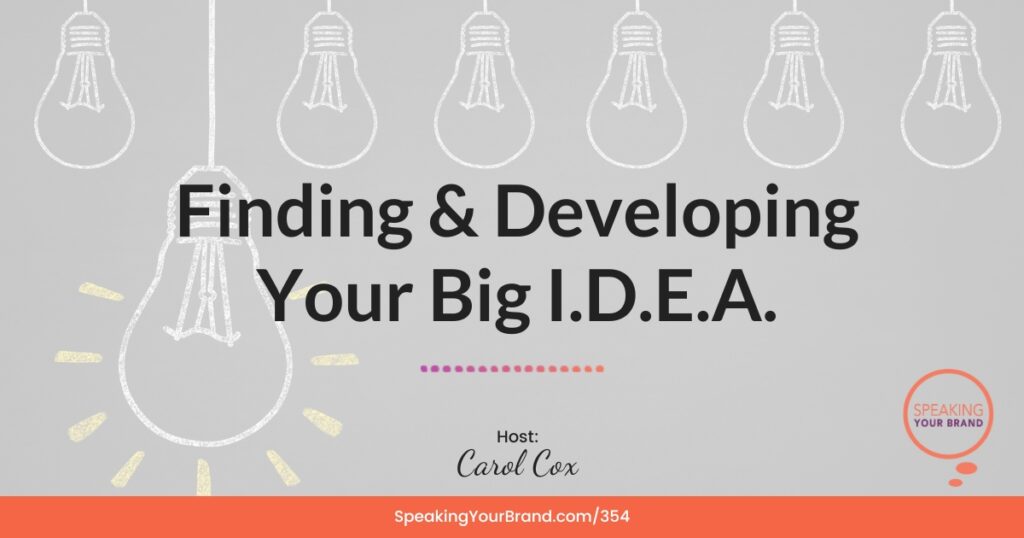



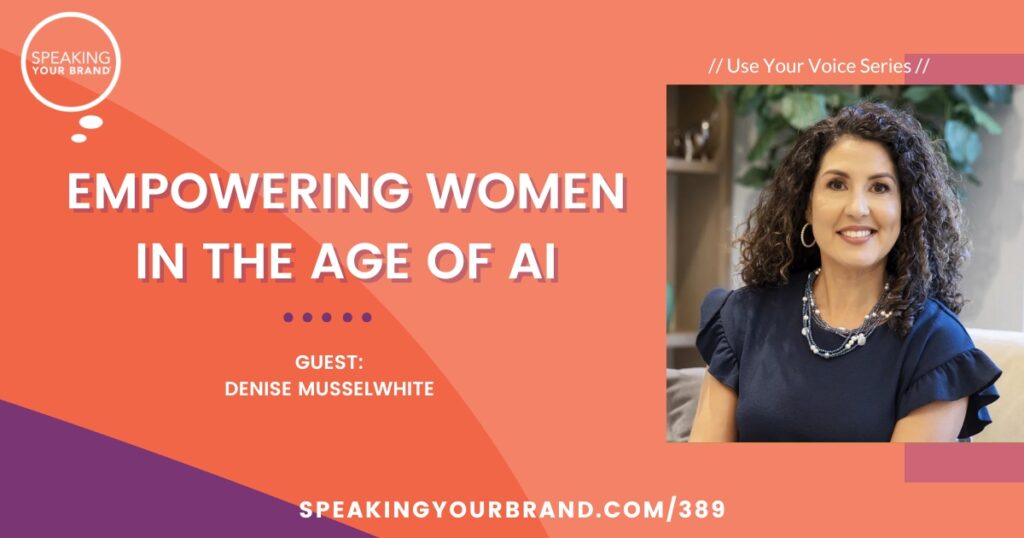
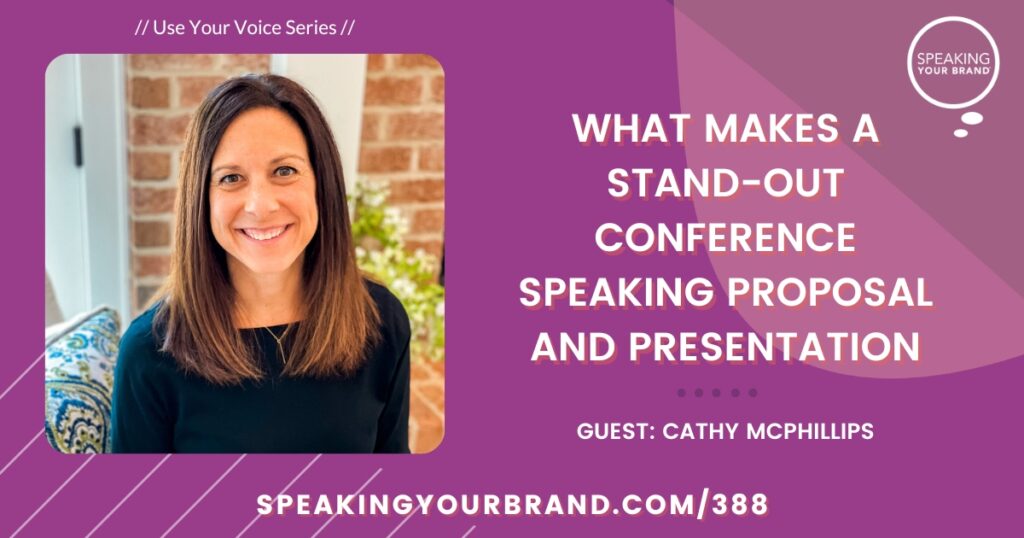
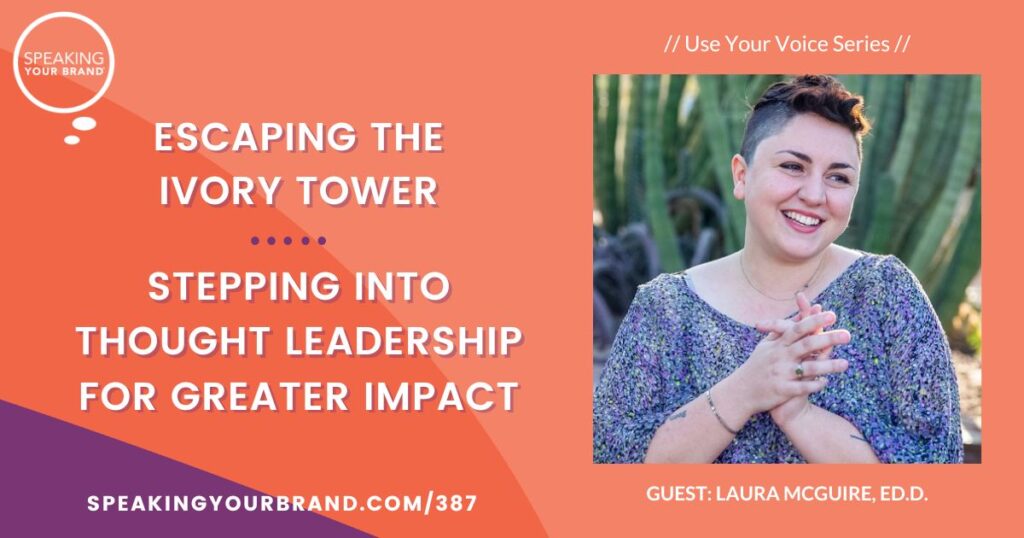
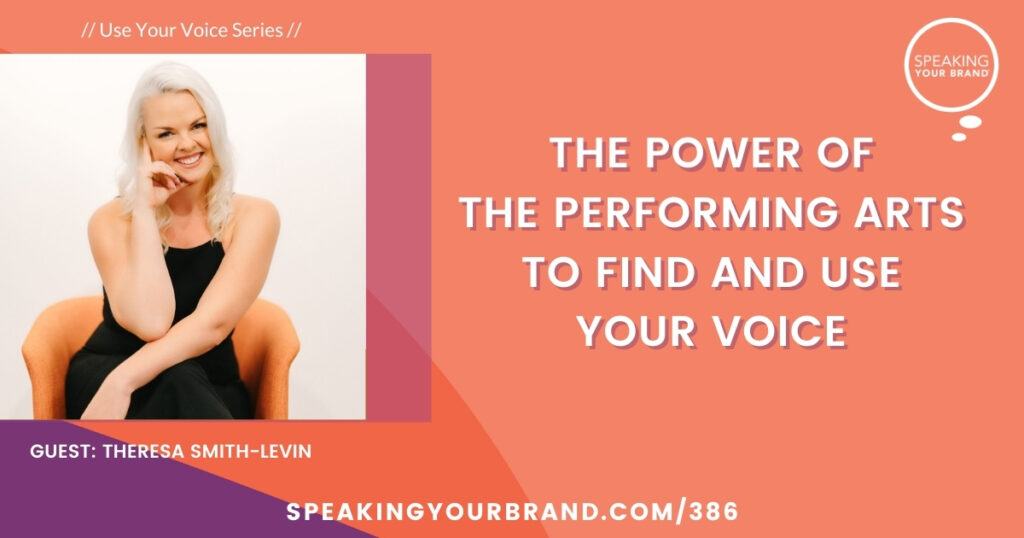
I’ve listened to this podcast, read the transcript, wrote copious notes, and now tagged it. Thank you, Carol, for the swirling of ideas in my head!